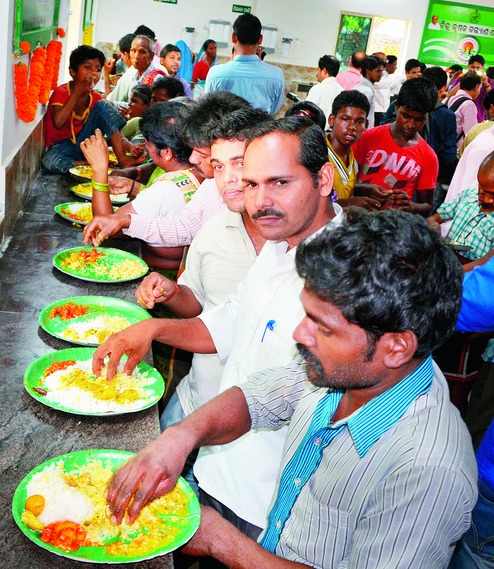
Bhubaneswar, April 23: The state government has framed strict guidelines to ensure that food served under Aahaar cheap meal scheme is good in quality and service impeccable.
The government has asked officials handling the scheme to stick to the guidelines.
The government has asked respective urban local bodies of the state, where the Aahaar centres are located, to assess and maintain the quantity and quality of the food.
It also stressed maintaining hygiene and cleanliness at the centres.
"There were some operational issues at Aahaar centres, which arose because of misunderstandings between the urban local bodies and respective implementing partners. We have issued a comprehensive guideline to remove these discrepancies and ensure smooth service at the centres," said an official of the housing and urban development department.
The guidelines maintain that electricity dues, water charges, watch and ward charges, daily cleaning charges, along with regular repair and maintenance of fittings, should be taken care of with funds available with the urban local body instead of depending on the implementing agencies.
Aahaar is a cheap meal programme that had been started in April 2015 by the state government to provide lunch to the urban poor at Rs 5 per meal.
The scheme was started in Bhubaneswar and subsequently expanded to other districts.
There are 111 Aahaar centres functioning in all the 30 districts catering to nearly 1.11 lakh people.
"The population of the urban poor in the cities and towns across the state is increasing. The Aahaar scheme aims to provide them quality food at a low cost. We have got the guidelines from the government and will implement it to ensure smooth service delivery at the Aahaar centre," said mayor Ananta Narayan Jena.
The state government has also asked the urban local bodies to frame their own standard operating procedure to maintain the quality of services at Aahaar centres.
Accordingly, the civic bodies can frame their own procedure to ensure proper disposal of unutilised food and periodical checks of the food quality.
The guideline also stresses on holding meetings of the district and city Aahaar societies regularly.
"They can hold meetings and appoint one nodal officer each to coordinate with State Aahaar Society in case of any confusion or discrepancies between the parties," said another official of the housing and urban development department.
The state government had already put a central monitoring mechanism at the housing and urban development for web monitoring of the Aahar outlets.
The mechanism enabled the officials to keep a close watch on the activities of the scheme on a live monitoring basis with surveillance of the centre with closed circuit television cameras.











